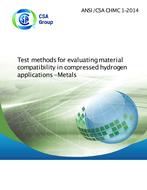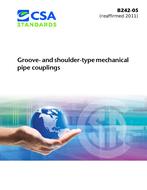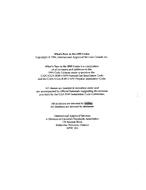Click here to purchase
Preface:
This is the first edition of CSA Z620.2, Compressor seal vent gas flow rate testing and recording.
This Standard outlines procedures and methods to determine vent gas flow rates from reciprocating compressor rod packings and centrifugal compressor seals in the petroleum and natural gas production, processing, and transmission industry.
CSA Group acknowledges that the development of this Standard was made possible, in part, by the financial support of Alberta Energy Regulator, Climate Change Division (Alberta Environment and Parks), BC Oil and Gas Commission and Environment and Climate Change Canada.
This Standard has been developed in compliance with Standards Council of Canada requirements for National Standards of Canada. It has been published as a National Standard of Canada by CSA Group.
Scope:
1.1 Compressor types
This Standard applies to compressor seal vent gas from reciprocating compressor rod packings and centrifugal compressor seals, including any auxiliary and support systems that are required for proper operation of the packing or sealing system.
The procedures considered in this Standard include compressor seal vent gas system tracing and alternate flow path identification, backpressure minimization, compressor seal vent gas loss management, measurement procedures, calculations, and data recording.
1.2 Exclusions
This Standard does not apply to (non-exhaustive list)
a) non-routine venting (e.g., compressor blowdown vents, engine starter vents);
b) other devices or components related to the compressor (e.g., pneumatics, pumps, variable volume clearance pockets);
c) fugitive emission management programs (e.g., leaking valves or connectors not associated with the compressor seal vent gas system);
d) measurement devices that do not internally admit the entire compressor seal vent gas flow in order to take a measurement (remote sensing or quantitative optical gas imaging); and
e) quantification of unburnt hydrocarbon or methane emissions in combustion devices (e.g., engines, turbines).
1.3 Gauge pressure
All references to “kPa” throughout this Standard are to be considered gauge pressures unless otherwise specified.
1.4 Terminology
In this Standard, “shall” is used to express a requirement, i.e., a provision that the user is obliged to satisfy in order to comply with the standard; “should” is used to express a recommendation or that which is advised but not required; and “may” is used to express an option or that which is permissible within the limits of the Standard. Notes accompanying clauses do not include requirements or alternative requirements; the purpose of a note accompanying a clause is to separate from the text explanatory or informative material. Notes to tables and figures are considered part of the table or figure and may be written as requirements. Annexes are designated normative (mandatory) or informative (non-mandatory) to define their application.
Product Details
- Edition:
- 1st
- Published:
- 06/01/2020
- ISBN(s):
- 9781488330148
- Number of Pages:
- 30
- File Size:
- 1 file , 870 KB
- Product Code(s):
- 2428272, 2428272


